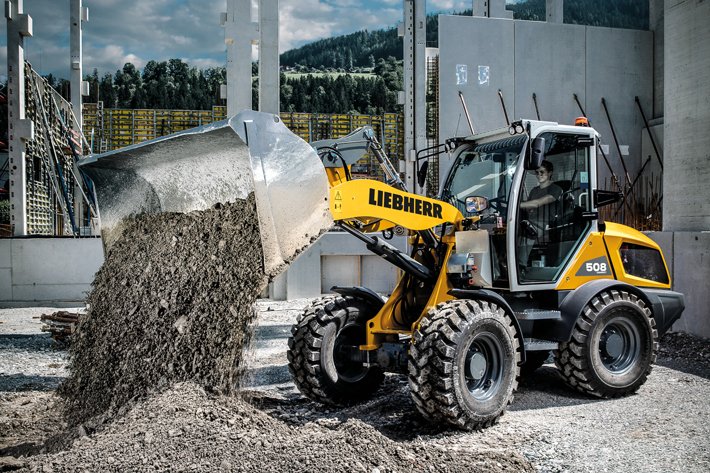How to Camp Sustainably in Pembrokeshire – Complete Guide
Camping in Pembrokeshire offers an incredible opportunity to experience the region’s stunning landscapes, beautiful coastlines, and unique wildlife. However, with its natural beauty comes a responsibility to preserve it for future generations. Sustainable camping is essential in minimizing the impact we have on the environment, and it’s easier than you might think to enjoy a memorable camping trip while protecting Pembrokeshire’s delicate ecosystems.
This guide will show you how to camp sustainably in Pembrokeshire, with practical tips to help reduce your environmental footprint. We’ll also mention Rhosson Ganol, one of the best campsites in the area, that supports eco-friendly camping practices.
1. Choose an Eco-Friendly Campsite
The first step to camping sustainably is choosing the right campsite. Many campsites in Pembrokeshire are dedicated to eco-friendly practices, encouraging minimal waste and energy consumption, as well as protecting the surrounding environment. When looking for a campsite, consider those that offer recycling facilities, use renewable energy, and encourage campers to be mindful of their impact.
Why Rhosson Ganol is the Best Campsite
Rhosson Ganol is one of the best campsites in Pembrokeshire, not just for its beautiful location but also for its commitment to sustainability. Situated near St. David’s, this campsite offers breathtaking coastal views and encourages campers to adopt eco-friendly habits. It’s the perfect base for anyone who wants to explore the Pembrokeshire Coast National Park while minimizing their environmental footprint.
2. Leave No Trace
One of the core principles of sustainable Pembrokeshire Camping is the “Leave No Trace” ethic. This means that whatever you bring into the campsite or outdoor area, you should also take away with you. Leaving no trace ensures that you don’t disturb the local wildlife or spoil the natural beauty for future visitors.
How to Practice Leave No Trace
- Pack out all rubbish: Bring reusable bags for your waste and recycling, and ensure that you dispose of everything properly at designated areas.
- Minimize campsite impact: Use existing campsites and avoid creating new areas that could damage the environment. Stick to established trails and pitches.
- Respect wildlife: Keep your distance from animals, and don’t leave food or other items that could attract them. Remember, human food can harm wildlife.
- Respect local flora: Don’t pick flowers, plants, or disturb natural habitats.
By following these guidelines, you help maintain the pristine environment of Pembrokeshire, allowing nature to thrive while you enjoy your stay.
3. Use Eco-Friendly Camping Gear
Another way to reduce your environmental impact is by choosing eco-friendly camping gear. This includes everything from tents to cooking equipment and clothing. Sustainable camping gear is often made from recycled materials, is built to last, and reduces waste.
Key Tips for Choosing Sustainable Gear
- Invest in durable equipment: A high-quality tent and sleeping gear that will last for many trips reduces waste. Look for tents made from eco-friendly materials or brands that prioritize sustainability.
- Eco-friendly cooking supplies: Use reusable cooking gear such as stainless steel pots and pans, bamboo utensils, and silicone food containers. Avoid single-use plastics.
- Clothing: Choose clothing made from sustainable materials such as organic cotton, recycled polyester, or bamboo. These materials are kinder to the planet and often perform well in various weather conditions.
Having the right gear will make your camping trip more enjoyable and sustainable in the long run.
4. Minimize Water Usage
Water conservation is a crucial part of sustainable camping, especially in areas like Pembrokeshire, where water resources may be limited. Many campers use more water than necessary, contributing to water waste.
How to Conserve Water While Camping
- Use a reusable water bottle: Refill your bottle instead of relying on single-use plastic bottles. Many campsites, including Rhosson Ganol, provide water refill stations.
- Take short showers: If your campsite has shower facilities, limit your water use by taking shorter showers or skipping a day if possible.
- Biodegradable soap: When washing dishes or yourself, use biodegradable soap that won’t harm the environment.
By reducing your water consumption, you not only lower your environmental impact but also help preserve water resources for the local community.
5. Reduce Energy Consumption
When camping, energy use can be easily minimized, especially when you’re away from the conveniences of everyday life. Instead of using energy-hungry devices, focus on enjoying nature and the simple pleasures of the outdoors.
Ways to Reduce Energy Usage
- Solar-powered devices: If you need to charge your phone or other devices, consider using a solar-powered charger. Solar lanterns and lights are also great for reducing your reliance on batteries.
- Campfire alternatives: Avoid large bonfires, as these can disrupt local wildlife and ecosystems. Instead, use a portable stove for cooking or a small, controlled fire in designated areas.
- Turn off electronics: Embrace the opportunity to unplug and reconnect with nature. Limit the use of electronics, and try to enjoy activities like hiking, reading, or stargazing instead.
Rhosson Ganol supports campers in reducing their energy consumption by offering eco-friendly facilities that encourage less reliance on artificial energy sources.
6. Support Local and Sustainable Businesses
Pembrokeshire is home to many local businesses that prioritize sustainability, from farmers’ markets to eco-friendly activity providers. By supporting these businesses, you contribute to the local economy while making more environmentally conscious choices.
How to Support Local Businesses
- Buy local food: Visit nearby markets or farms to purchase fresh, local produce. This reduces your carbon footprint compared to buying imported goods from larger supermarkets.
- Choose eco-friendly activities: Many activity providers in Pembrokeshire offer sustainable tours and outdoor adventures, such as kayaking or wildlife tours, with a focus on conservation.
- Shop responsibly: If you need to buy any supplies, try to find eco-friendly, local brands rather than big chains.
This not only helps the local community but also ensures that you’re making greener choices throughout your camping experience.
7. Travel Sustainably
Getting to Pembrokeshire and traveling around the area can also have an environmental impact. Reducing your carbon footprint while traveling is a key aspect of camping sustainably.
Sustainable Travel Options
- Carpooling: If you’re traveling with friends or family, try to share transportation to reduce emissions.
- Public transport: Pembrokeshire has good public transport links, including buses and trains. Using public transport helps lower your carbon footprint.
- Cycling and walking: Once you’ve arrived at your campsite, such as Rhosson Ganol, consider cycling or walking to nearby attractions rather than driving. Pembrokeshire is a fantastic place to explore by foot, with numerous scenic walking routes.
Planning your trip with sustainability in mind ensures that your camping adventure leaves a smaller environmental impact.
8. Respect Local Communities
When camping in Pembrokeshire, it’s essential to respect the local communities, their traditions, and their way of life. Tourism can have both positive and negative effects on local residents, so it’s important to engage with the area responsibly.
How to Be a Responsible Camper
- Be mindful of noise: Keep noise levels down, particularly in rural or quieter areas, to avoid disturbing both locals and other campers.
- Respect private land: Stay on marked paths and avoid trespassing on private property. Many areas in Pembrokeshire are privately owned, and it’s important to respect boundaries.
- Follow local guidelines: Whether it’s campsite rules or regional guidelines regarding conservation, always ensure that you’re following them carefully.
By respecting the local community and culture, you contribute to sustainable tourism and foster positive relations between visitors and residents.
Conclusion
Camping sustainably in Pembrokeshire is not just about preserving the environment—it’s about creating a more meaningful and enjoyable experience for yourself and future visitors. By choosing an eco-friendly campsite like Rhosson Ganol, adopting Leave No Trace principles, using sustainable gear, conserving water and energy, and supporting local businesses, you can ensure that your camping trip has a positive impact on both the environment and the local community.






